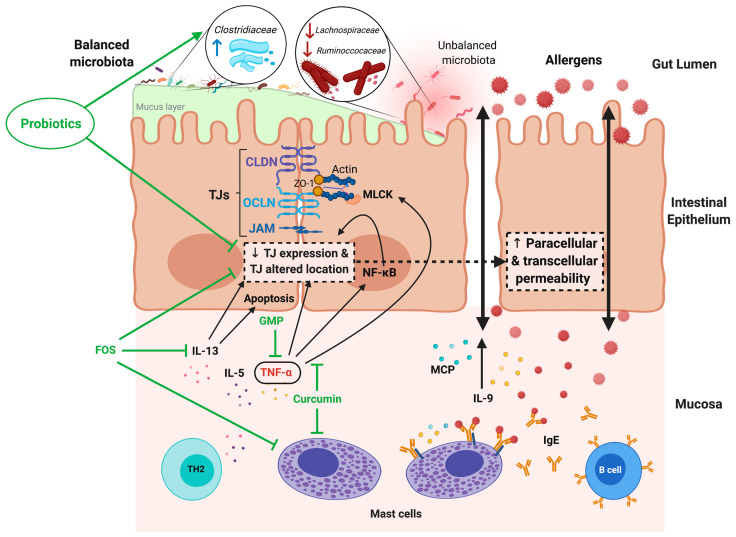Figure 4.
Increased intestinal permeability in food allergy (FA) and modulatory effects of probiotic, prebiotic, and food components. In the intestinal mucosa of allergic subjects, an inflammatory response develops that is dominated by Th2 cytokines, such as IL-5 and IL-13, which induce MC hyperplasia and allergen-specific IgE synthesis by B lymphocytes. In response to allergen recognition by IgE, which is bound to specific receptors on the MC surface, cells are activated and release TNF-α, proteases (MCP), and IL-9, as well as other inflammatory mediators. This allergic inflammatory environment induces a decrease in TJ expression and modifications that initiate an increase in the transcellular permeability of the mucosal epithelium. The augmented transcellular passage of allergens through enterocytes is also described during FA. Inflammatory mediators and mechanisms involved in the increased intestinal permeability during FA are indicated by black arrows. Treatment based on the oral intake of probiotic bacteria, prebiotics, and food components has shown beneficial effects in preventing or restoring the impaired barrier function in FA. The target molecules of these therapies are indicated by green lines. (This figure was created with Biorender.com, access date: 24 May 2021).

